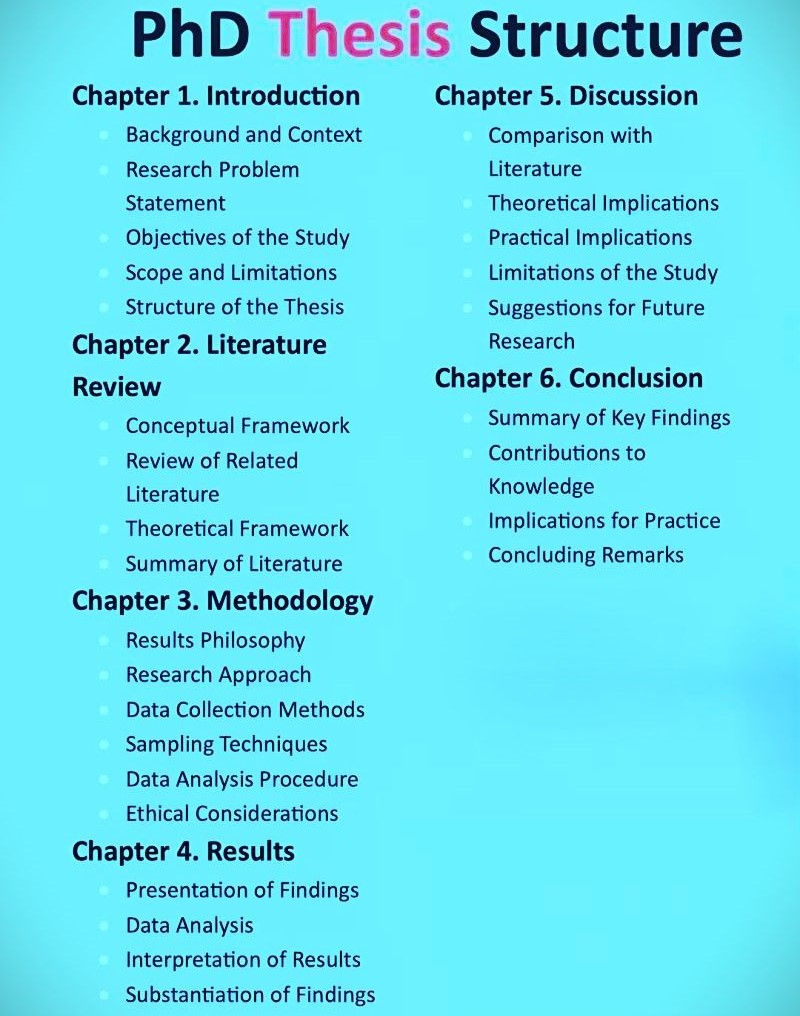
Table of Contents
Embarking on a PhD journey in nursing is a significant undertaking. The culmination of years of rigorous study and research rests on the successful completion of your PhD thesis for nursing. This document is not just a report of your findings; it’s a testament to your expertise, critical thinking, and contribution to the nursing profession.
This comprehensive guide will provide you with a roadmap to navigate the complex process of writing a compelling and impactful PhD thesis for nursing.
What is a PhD Thesis in Nursing?
Before diving into the mechanics of writing, it’s crucial to understand the nature and purpose of a PhD thesis for nursing. It’s more than just a longer version of a Master’s thesis. It demonstrates:
- Originality: Your research should contribute new knowledge or perspectives to the field of nursing.
- Significance: The research should address a relevant and important problem in nursing practice, education, policy, or theory.
- Rigour: The research methodology should be sound, well-justified, and executed with meticulous attention to detail.
- Critical Analysis: You must demonstrate a deep understanding of the existing literature and critically evaluate its strengths and weaknesses.
- Scholarly Writing: The thesis must be written in a clear, concise, and persuasive manner, adhering to the conventions of academic writing.
The core aim of your PhD thesis for nursing is to advance the science and art of nursing, ultimately improving patient outcomes and the overall health of the population.
Step-by-Step Guide to Writing Your PhD Thesis for Nursing
Writing a PhD thesis for nursing can feel overwhelming. Breaking the process down into manageable steps can make it more achievable.
1. Defining Your Research Topic and Question:
- Identify Your Passion: What areas of nursing truly ignite your interest? Passion fuels dedication, which is essential for the long haul.
- Review the Literature: Conduct a thorough review of existing research to identify gaps in knowledge and potential areas for investigation. This is the cornerstone of your PhD thesis for nursing.
- Formulate a Clear Research Question: Your question should be specific, measurable, achievable, relevant, and time-bound (SMART). It should guide the entire research process and be clearly articulated in your PhD thesis for nursing.
- Consider Feasibility: Ensure that your research question is feasible in terms of resources, time, and access to participants.
2. Developing a Robust Research Proposal:
The research proposal is a blueprint for your PhD thesis for nursing. It outlines your intended research and demonstrates its merit. Key components include:
- Introduction: Briefly introduce the research problem, its significance, and your research question.
- Literature Review: Provide a comprehensive overview of the relevant literature, highlighting key concepts, theories, and research findings. Show how your work relates to and builds upon existing knowledge.
- Methodology: Describe your research design, data collection methods, data analysis techniques, and ethical considerations. Justify your chosen methods and explain how they will address your research question. This section is vital for demonstrating the rigour of your PhD thesis for nursing.
- Expected Outcomes and Significance: Discuss the potential impact of your research on nursing practice, education, policy, or theory.
- Timeline and Budget: Provide a realistic timeline for completing your research and a detailed budget outlining the necessary resources.
3. Conducting Rigorous Research:
This is the foundation of your PhD thesis for nursing.
- Ethical Approval: Obtain ethical approval from your institution’s ethics committee before commencing any data collection.
- Data Collection: Implement your data collection methods with precision and consistency. Maintain detailed records of your data collection process.
- Data Analysis: Analyze your data using appropriate statistical or qualitative methods. Ensure that your analysis is thorough, rigorous, and transparent.
4. Structuring Your PhD Thesis for Nursing:
While the exact structure may vary depending on your discipline and institution, a typical PhD thesis for nursing includes the following chapters:
- Chapter 1: Introduction:
- Background of the study
- Statement of the problem
- Significance of the study
- Research question(s) or hypotheses
- Aims and objectives
- Definitions of key terms
- Overview of the thesis structure
- Chapter 2: Literature Review:
- Comprehensive and critical review of relevant literature
- Identification of gaps in knowledge
- Theoretical framework underpinning the research
- Chapter 3: Methodology:
- Research design
- Study population and sample
- Data collection methods
- Data analysis techniques
- Ethical considerations
- Validity and reliability (or trustworthiness in qualitative research)
- Chapter 4: Results:
- Presentation of findings using tables, figures, and text
- Objective reporting of results without interpretation
- Chapter 5: Discussion:
- Interpretation of findings in light of the literature
- Discussion of the implications of the findings for nursing practice, education, policy, or theory
- Strengths and limitations of the study
- Suggestions for future research
- Chapter 6: Conclusion:
- Summary of key findings
- Overall conclusions based on the research
- Contribution to knowledge
- Final reflections
- References: A complete list of all sources cited in the thesis.
- Appendices: Supplementary materials such as interview guides, questionnaires, and consent forms.

You can also check out this guide on how to craft a robust outline for your nursing thesis.
5. Crafting a Compelling Narrative:
- Clarity and Conciseness: Write in a clear and concise style, avoiding jargon and ambiguity.
- Logical Flow: Ensure that your thesis has a logical flow, with each chapter building upon the previous one.
- Persuasive Argument: Present your findings in a persuasive manner, supporting your claims with evidence from your data and the literature.
- Critical Thinking: Demonstrate critical thinking by analyzing your findings from multiple perspectives and acknowledging the limitations of your research.
6. Editing and Proofreading:
- Thorough Editing: Carefully edit your thesis for grammar, spelling, punctuation, and style.
- Seek Feedback: Ask colleagues, mentors, and other experts to read your thesis and provide feedback.
- Professional Proofreading: Consider hiring a professional proofreader to ensure that your thesis is error-free.
Avoiding Common Challenges in Writing a PhD Thesis for Nursing
The journey of crafting a compelling and original PhD thesis for nursing is rarely straightforward. Aspiring doctoral candidates often face a myriad of challenges that can prolong the process and even derail their progress. Here are some of the most common hurdles and practical strategies to navigate them successfully.
1. Formulating a Feasible and Relevant Research Question
One of the earliest and most crucial challenges is defining a research question that is both feasible and relevant to the field of nursing. A poorly formulated question can lead to a meandering research project with ill-defined parameters.
- Challenge:
- Overly Broad Scope: Attempting to tackle too much within a single thesis.
- Lack of Novelty: Replicating existing research without adding a significant contribution.
- Practical Infeasibility: Limited access to data, resources, or appropriate participant populations.
- How to Avoid It:
- Extensive Literature Review: Immerse yourself in existing literature to identify gaps in knowledge and emerging trends.
- Consultation with Advisors: Seek guidance from experienced faculty members who can help refine your research question and assess its feasibility.
- Pilot Studies: Consider conducting a pilot study to test the feasibility of your research methods and refine your research question.
- Consider Emerging Areas: Investigate areas with limited research but high clinical relevance, like telehealth implementation or innovative patient care models.
2. Maintaining Rigor in Research Methodology
The credibility of a PhD thesis for nursing hinges on the rigor of the research methodology employed. Selecting and implementing appropriate methods, ensuring validity and reliability, and adhering to ethical considerations are paramount.
- Challenge:
- Methodological Mismatch: Choosing a methodology that is not suitable for the research question.
- Bias and Subjectivity: Failing to address potential biases in data collection and analysis.
- Ethical Dilemmas: Neglecting ethical considerations related to participant recruitment, informed consent, and data confidentiality.
- How to Avoid It:
- In-depth Methodology Training: Participate in workshops and seminars focused on research methodologies relevant to your area of study.
- Rigorous Data Analysis: Employ appropriate statistical techniques and qualitative analysis methods to ensure the accuracy and reliability of your findings.
- Ethical Review Boards (IRB): Obtain ethical approval from an IRB before commencing any research involving human subjects.
- Transparency: Clearly articulate your research methods, limitations, and potential biases in your thesis.
3. Structuring and Organizing the Thesis Effectively
A well-structured and organized thesis is crucial for presenting your research findings in a clear and coherent manner. A disorganized thesis can make it difficult for readers to understand your arguments and appreciate the significance of your research.
- Challenge:
- Lack of a Clear Narrative: Failing to present a compelling story that connects the various sections of the thesis.
- Poor Organization: A disorganized structure that makes it difficult to follow the logical flow of the argument.
- Inconsistent Formatting: Failing to adhere to the required formatting guidelines.
- How to Avoid It:
- Develop a Detailed Outline: Create a detailed outline that maps out the structure of your thesis and ensures a logical flow of arguments.
- Utilize Headings and Subheadings: Use clear and concise headings and subheadings to guide readers through your thesis.
- Seek Feedback on Structure: Ask your advisors and peers to review your thesis structure and provide feedback on its clarity and coherence.
- Adhere to Formatting Guidelines: Carefully review and adhere to the formatting guidelines provided by your university.
4. Overcoming Writer’s Block and Maintaining Momentum
Writing a PhD thesis for nursing is a marathon, not a sprint. It requires sustained effort and commitment over a prolonged period. Writer’s block and lack of motivation can derail the process and prolong the completion time of your PhD thesis for nursing.
- Challenge:
- Procrastination: Delaying the writing process due to fear or overwhelm.
- Perfectionism: Striving for unattainable perfection, leading to analysis paralysis.
- Burnout: Experiencing emotional and physical exhaustion due to the demanding nature of the thesis writing process.
- How to Avoid It:
- Establish a Writing Schedule: Create a realistic writing schedule and stick to it as much as possible.
- Break Down Large Tasks: Divide the thesis into smaller, more manageable tasks to avoid feeling overwhelmed.
- Seek Support from Peers: Connect with other doctoral students and share your experiences and challenges.
- Prioritize Self-Care: Take breaks, engage in activities you enjoy, and prioritize your physical and mental well-being.
5. Effectively Disseminating Your Research Findings
The final stage of the PhD thesis for nursing journey involves disseminating your research findings to a wider audience. This may involve publishing your work in peer-reviewed journals, presenting at conferences, and sharing your findings with practitioners and policymakers.
- Challenge:
- Rejection from Journals: Facing rejection from peer-reviewed journals due to methodological flaws, lack of novelty, or poor writing.
- Difficulties with Presentation: Struggling to present your research findings in a clear and engaging manner.
- Limited Impact: Failing to translate your research findings into practical implications for nursing practice.
- How to Avoid It:
- Target Appropriate Journals: Identify journals that are a good fit for your research and follow their guidelines for submission.
- Practice Presentation Skills: Rehearse your presentations and seek feedback from colleagues and mentors.
- Collaborate with Practitioners: Engage with practitioners to translate your research findings into practical implications for nursing practice.
By addressing these common hurdles head-on and implementing the strategies outlined above, aspiring doctoral candidates can increase their chances of completing a high-quality thesis that contributes meaningfully to the field of nursing.
Ethical Considerations in PhD Nursing Thesis Research
Ethical considerations are paramount in all research, particularly in nursing where vulnerable populations are often involved. Your PhD nursing thesis for nursing must adhere to the highest ethical standards.
- Informed Consent: Obtain informed consent from all participants, ensuring that they understand the purpose of the research, their rights, and the potential risks and benefits of participation.
- Confidentiality and Anonymity: Protect the confidentiality and anonymity of participants by securely storing data and using pseudonyms or codes when reporting findings.
- Beneficence and Non-Maleficence: Ensure that your research benefits participants and minimizes any potential harm.
- Justice: Treat all participants fairly and equitably.
- Data Integrity: Maintain the integrity of your data by accurately recording, analyzing, and reporting your findings.

The Best Topics for Your PhD Nursing Thesis
Embarking on a PhD journey in nursing is a significant undertaking, and selecting a compelling and impactful topic for your PhD thesis for nursing is paramount. The best topics not only contribute to the existing body of knowledge but also align with your interests and career goals. Navigating this decision can be challenging, but considering several key areas can help you identify a winning proposal.
Here are some promising avenues for exploration:
Addressing Healthcare Disparities and Equity:
A persistent challenge in healthcare is addressing inequalities in access and outcomes based on factors like race, ethnicity, socioeconomic status, and geographic location. Potential research areas include:
- Developing culturally sensitive interventions: Evaluating the effectiveness of tailored interventions designed to improve health outcomes for specific populations.
- Examining the impact of social determinants of health: Investigating how factors like housing, food security, and education influence nursing care and patient well-being.
- Improving access to care in underserved communities: Analyzing strategies to enhance healthcare delivery in rural or low-income areas.
Leveraging Technology and Innovation in Nursing Practice:
Technological advancements are rapidly transforming healthcare. Your PhD thesis for nursing could focus on:
- Telehealth implementation and outcomes: Evaluating the effectiveness of telehealth interventions in various settings and for different patient populations.
- Artificial intelligence and decision support systems: Exploring the use of AI to improve clinical decision-making and patient safety.
- Wearable technology for patient monitoring: Investigating the use of wearable devices to track patient health metrics and facilitate remote monitoring.
Improving Patient Safety and Quality of Care:
Patient safety remains a critical concern. Research opportunities abound in areas such as:
- Reducing medication errors: Developing and evaluating interventions to minimize medication-related adverse events.
- Preventing hospital-acquired infections: Investigating strategies to improve infection control practices and reduce the incidence of HAIs.
- Enhancing communication and teamwork among healthcare professionals: Exploring the impact of communication and collaboration on patient outcomes.
Focusing on Mental Health and Well-being:
Given the increasing prevalence of mental health issues, this is a vital area for nursing research. Ideas for your PhD thesis for nursing might include:
- Integrating mental healthcare into primary care: Examining the effectiveness of collaborative care models for addressing mental health needs.
- Developing interventions to reduce burnout among nurses: Investigating strategies to promote nurse well-being and prevent burnout.
- Addressing the mental health needs of specific populations: Focusing on the mental health challenges faced by veterans, adolescents, or individuals with chronic illnesses.

Ultimately, the best topic for your PhD thesis for nursing is one that sparks your passion, aligns with current healthcare needs, and has the potential to make a meaningful contribution to the nursing profession. Thoroughly reviewing the existing literature, identifying research gaps, and discussing your ideas with faculty mentors are crucial steps in selecting a rewarding and impactful research project.
Resources and Support for Your PhD Thesis for Nursing
You are not alone in this journey. Many resources and support systems are available to help you succeed:
- Your Advisor: Your advisor is your primary source of guidance and support. Meet with them regularly to discuss your progress and address any challenges.
- Your Dissertation Committee: Your committee members can provide valuable feedback on your research and thesis.
- University Libraries: Libraries offer a wealth of resources, including access to databases, journals, and books.
- Writing Centers: Writing centers provide assistance with all aspects of writing, from brainstorming to editing.
- Peer Support Groups: Connect with other PhD students in nursing to share experiences, provide support, and offer feedback.
- Professional Organizations: Organizations such as the American Nurses Association (ANA) and the Sigma Theta Tau International Honor Society of Nursing offer resources and networking opportunities for PhD students.
Navigating the World of PhD Thesis Writing Services
While the core of your PhD thesis for nursing should be your own original work, it’s important to be aware of the existence of services that offer assistance. At Nursing Papers, we offer professional PhD thesis writing services. Our service covers topic suggestion, nursing thesis writing, proofreading, editing, formatting and plagiarism removal. Besides PhD nursing thesis help, we can also assist you with writing essays, research papers, case studies and dissertations for academic excellence.
Conclusion: A Rewarding Journey
Writing a PhD thesis for nursing is a challenging but rewarding journey. By following the steps outlined in this guide, seeking support from your mentors and colleagues, and maintaining a commitment to excellence, you can produce a PhD thesis for nursing that makes a significant contribution to the profession. Embrace the process, learn from your experiences, and celebrate your achievements along the way. Good luck!







